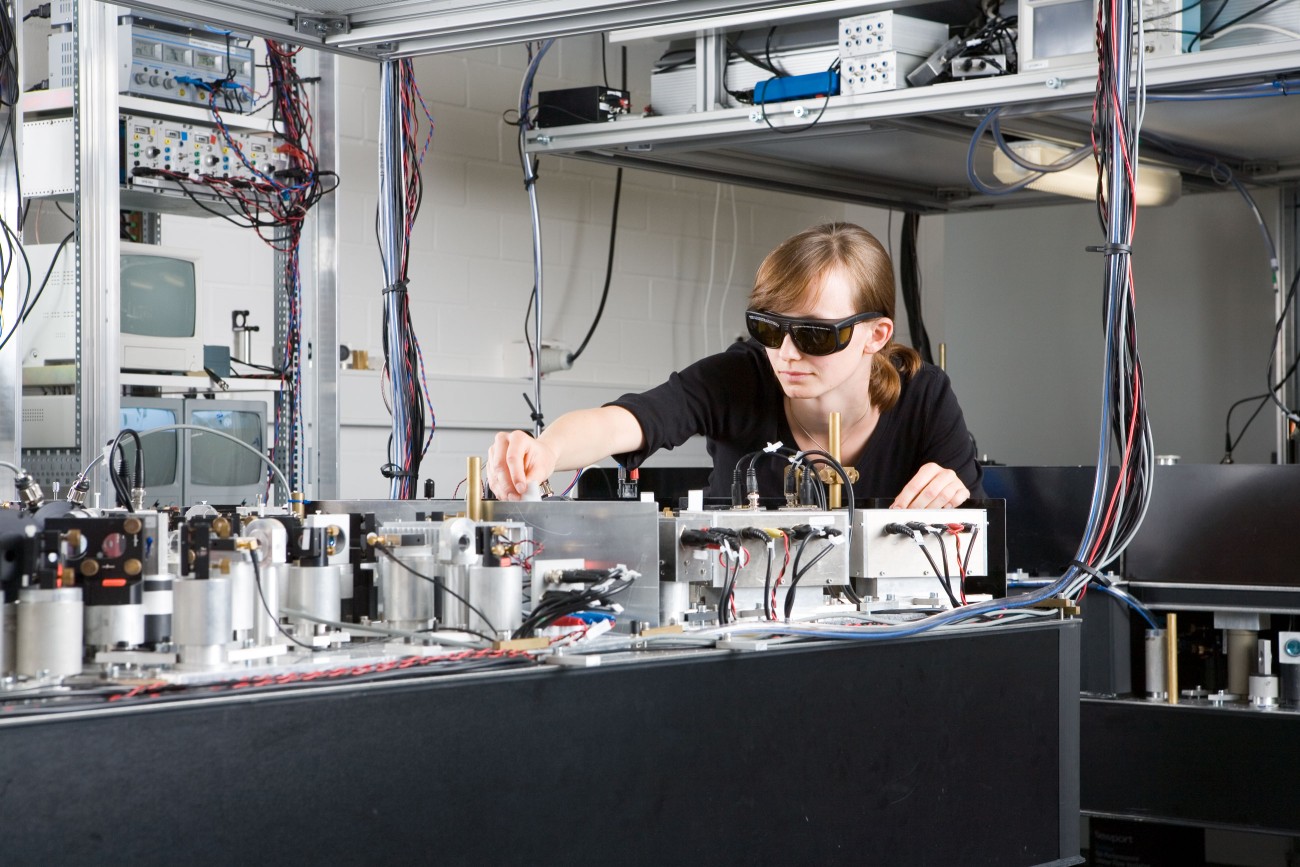Physik
Master of Science; tuition language: German
The following English language content is for information purposes only. The legally binding content can be found on the corresponding German website.
Description
The M.Sc. Physik focuses on the mathematical and natural sciences. It comprises advanced and specialised lectures, courses from the areas of experimental and theoretical physics and from a supplemental subject outside of physics, typically from mathematics, natural sciences or engineering sciences. Students can choose interdisciplinary courses from the complete Technical University of Darmstadt course catalogue to increase the scope of the programme. A one-year research phase complements this broad spectrum.
Study Regulations with Semester Course and Examination Schedule
| Semesters | 4 |
| Language | German. Scientific literature may have to be read and edited in English. Individual courses can be offered in English. |
| Start of studies | Winter semester, summer semester |
| Internship | programme-internal internship (see Semester Course Schedule) |
| Admission requirements |
1. A degree B.Sc. Physik of TU Darmstadt (reference programme) or an equivalent degree; 2. additional requirements: Study regulations Competences description; |
| Admission procedure | Provided that the admission requirements (entrance examination) are met, there are no numerical admission restrictions. |
| Application |
Application portal and application deadlines How and when to provide the certification of the bachelor's degree Formal and language requirements for applicants with international qualifications |
| Good to know |
Costs and budget Preparatory courses for international students Pre-Courses, orientation week, getting started Double Degree Programme Study Abroad Part-time studies Doctoral studies TU Darmstadt Career Service Alumni careers |



